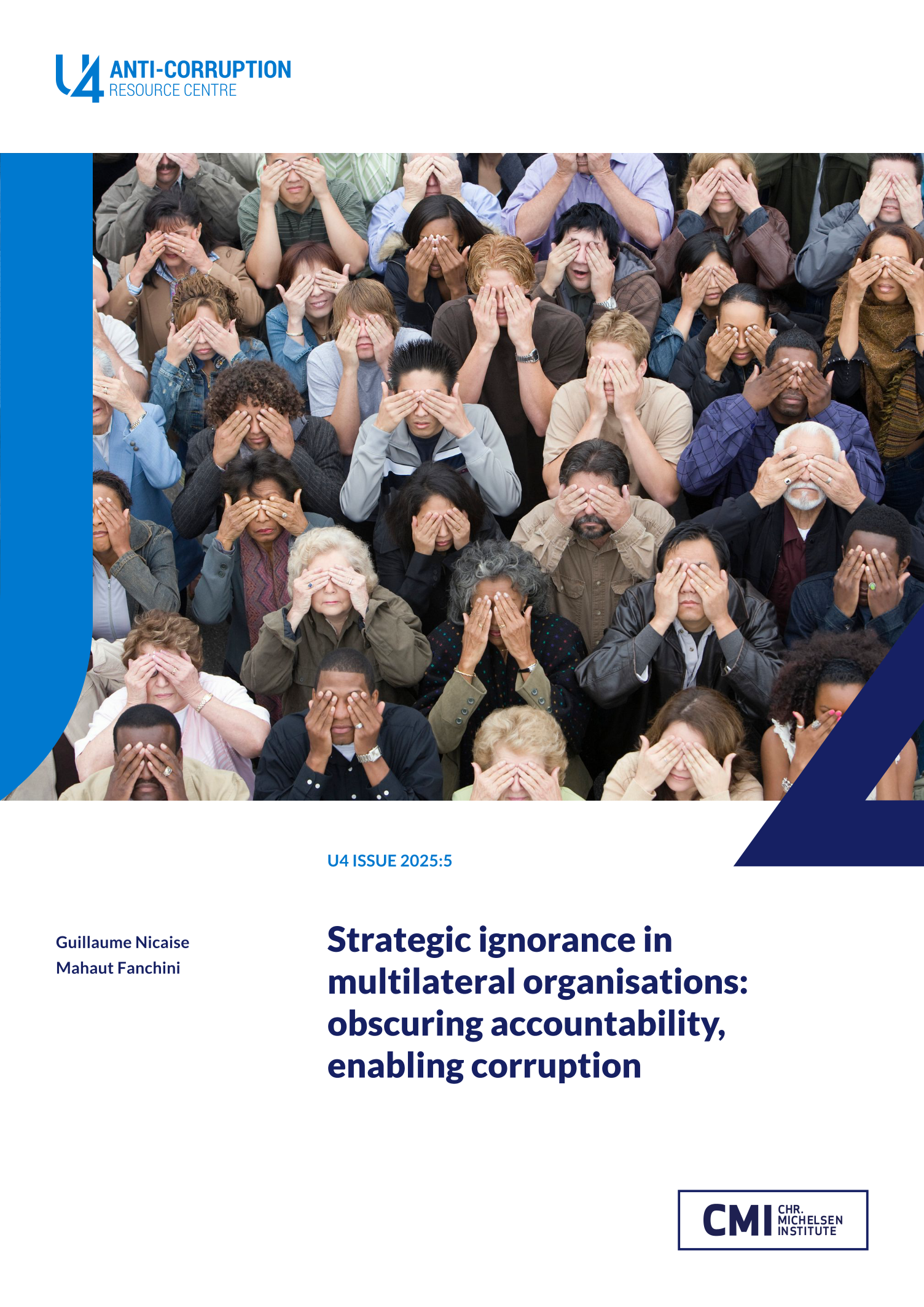Main points
- Strategic ignorance is a deliberate or systemic condition where information is selectively concealed, downplayed, or dismissed in ways that obstruct accountability and enable misconduct. It is produced through decisions about what is documented, shared, or silenced within an organisation.
- In multilateral organisations, strategic ignorance is shaped by confidentiality protocols, internal discretion, and organisational incentives. It operates through both formal systems and informal professional cultures.
- These dynamics affect how misconduct is reported, how risks are managed, and what becomes publicly visible.
- Our research draws on empirical material from the UN Office for Project Services (UNOPS) housing-programme scandal, and the UN’s Oil-for-Food Programme, as well as interviews with staff across UN agencies.
- We show that reducing strategic ignorance requires more than compliance. It involves embedding transparency into governance routines and fostering a culture where speaking up is enabled, not penalised.
- Finally, we offer practical recommendations to distinguish between necessary confidentiality and illegitimate concealment, along with clear metrics to detect and curb strategic ignorance in multilateral settings.



